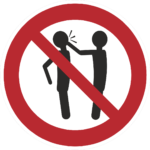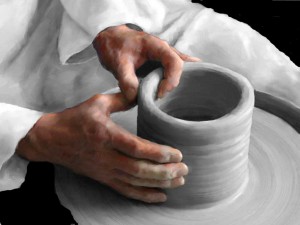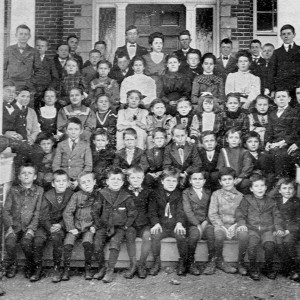 1 Corinthians 11:27-32
1 Corinthians 11:27-32
Dulin’s Grove participates in the Lord’s Supper once a quarter. Many churches do it every week. The main objection I’ve heard to doing it that often is that it would become rote. Whether or not this is true, unworthy participation in the Lord’s Supper is indeed dangerous.
The Lord’s Supper is our regular remembrance of Jesus broken body and shed blood. It symbolizes our very foundation as Christians. In this passage, we see a warning, a consequence and an instruction regarding our participation in the Lord’s Supper.
Warning
Whoever, therefore, eats the bread or drinks the cup of the Lord in an unworthy manner will be guilty concerning the body and blood of the Lord. (v.27)
Unworthy participation equals guilt concerning the body and blood of the Lord.
At our church, we use Welch’s grape juice for the cup and Lowe’s Foods brand oyster crackers for the bread. I remember one Sunday, Wil Boston was thirsty and drank some juice out of the church fridge. When I told him it was the communion juice he looked like he thought God might strike him dead. Of course, God didn’t. That’s because there is nothing sacred about grape juice or crackers–until we use them as symbols to remember Jesus Christ’s broken body and shed blood on our behalf.
As symbols of Jesus’ body and blood, we dare not handle them in an unworthy manner. To do so is to crucify Christ from our pew. The Corinthians were unworthy because they came to the communion table without self-examination to gorge themselves and get drunk.
Consequence
For anyone who eats and drinks without discerning the body eats and drinks judgment on himself. That is why many of you are weak and ill, and some have died. But if we judged ourselves truly, we would not be judged. But when we are judged by the Lord, we are disciplined so that we may not be condemned along with the world. (v. 29-32)
 The consequence for unworthy participation in the Lord’s Supper is physical: weakness, illness and even death. It is conceivable that some of us (many of us?) have been sick because of this sin. Some of us may have even died because of it.
The consequence for unworthy participation in the Lord’s Supper is physical: weakness, illness and even death. It is conceivable that some of us (many of us?) have been sick because of this sin. Some of us may have even died because of it.
How can this be? Why would God be so harsh on this point? The reason Paul gives is this: so that we may not be condemned along with the world. Slipping into casual unworthiness in the face of the clearest reminder of Christ’s bloody sacrifice on our behalf is dangerously close to identification with the world. And God will not allow his children to live this way.
I have two children and I discipline them when they rebel. The more their rebellion endangers them, the more stern my discipline. Running toward the busy road in front of our house triggers harsher discipline than not picking up their toys. This is because I love them and want to protect them. God is the ultimate loving father, and as such, we will not allow us to be condemned along with the world by participating in the sacred things of Christ unworthily.
Instruction
Let a person examine himself, then, and so eat of the bread and drink of the cup.
Being worthy is not about being perfect. It’s about recognizing our imperfections and thus approaching the Perfect One for forgiveness and cleansing. So, it’s not that you have to abstain from communion if you’ve had a bad week spiritually. It’s that you must examine yourself, confess your sins and approach the table for the right reasons.
For me, 1 John 1:5-9 helps:
This is the message we have heard from him and proclaim to you, that God is light, and in him is no darkness at all. If we say we have fellowship with him while we walk in darkness, we lie and do not practice the truth. But if we walk in the light, as he is in the light, we have fellowship with one another, and the blood of Jesus his Son cleanses us from all sin. If we say we have no sin, we deceive ourselves, and the truth is not in us. If we confess our sins, he is faithful and just to forgive us our sins and to cleanse us from all unrighteousness. If we say we have not sinned, we make him a liar, and his word is not in us.
Are there areas of darkness between you and God? Are there areas of darkness between you and other people? What sins do you need to confess in order to come into the light and receive forgiveness and cleansing? This is what the Lord’s Supper is all about. This is what Jesus died for.
A Note About Self-Examination
When examining yourself, remember that you have two voices vying for your attention. You have the Holy Spirit, who convicts you of specific sins and prompts you to act in confession and repentance. This leads to the freedom of a clean conscience. Then you have the Adversary, who condemns you with general accusation. Where the Holy Spirit will move you to action, the Adversary will paralyse you in vague guilt and shame. You’ll need to prayerfully examine yourself in light of Scripture to discern the difference.
Discussion Starters
- When did you start participating in the Lord’s Supper? How did you think about it back then? How does that contrast with the way you view it now?
- Why do you think unworthy participation in the Lord’s Supper such a serious sin in God’s eyes?
- What are some practical ways a Christian can examine himself?
- Read verse 30. Do you think this still happens to people? Why or why not. (See also Acts 5.)
- What is the difference between the judgement/discipline Christians receive when they approach the Lord’s Supper in an unworthy manner and the judgment/condemnation the world will receive upon Christ’s return? (see Hebrews 12:7 too.)







